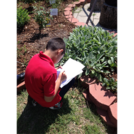
Students will learn how descriptive words make stories clearer and more interesting to read.
- Subject:
- English Language Arts
- Material Type:
- Lesson Plan
- Author:
- Out Teach
- Date Added:
- 07/22/2021

Students will learn how descriptive words make stories clearer and more interesting to read.

This is a SoftChalk lesson reviewing the figurative language terms simile, metaphor, personification, imagery, and symbolism.
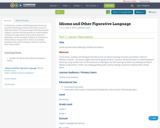
In this lesson, students will distinguish the literal and non-literal meanings of verbal and written content in different contexts. The lesson targets third-fourth grade students. Learners will demonstrate an understanding of idioms by using context clues in the sentences to help figure out the meanings of idioms, by drawing out idioms without using words or letters, by creating greeting cards, and by creating a costume to portray their chosen idiom.
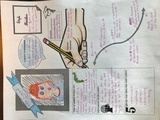
This mini-unit is an introduction to poetry and can be used in middle school or early high school. Each lesson should take about an hour and covers basic such as: Prose vs. Poetry, Traditional vs. Organic Poetry, poetry structure, figurative language and sound devices, context clues, tone, and meaning. Several examples of poems are provided along with notes, guided practice, and indepent assessments.
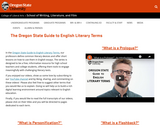
This free video series provides definitions of literary terms in English literature to students and teachers. It also offers examples of how these literary devices can be applied to poems, plays, novels, and short stories. We are in the process of translating the videos into Spanish and many of them now contain these subtitles.
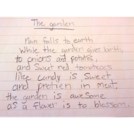
STUDENT ACTIVITY - 5th - TXThis is a distance-learning lesson students can complete at home. The student will evaluate the impact of sensory language and figurative language in poetry, and create an original poem using the outdoors as inspiration for their writing.This activity was created by Out Teach (out-teach.org), a nonprofit providing outdoor experiential learning to transform Science education for students in under-served communities.

Students evaluate the impact of sensory language and figurative language in poetry, and determine the overall meaning of the poem using the outdoor classroom as a context for their writing.

"Reading Poetry" has several aims: primarily, to increase the ways you can become more engaged and curious readers of poetry; to increase your confidence as writers thinking about literary texts; and to provide you with the language for literary description. The course is not designed as a historical survey course but rather as an introductory approach to poetry from various directions – as public or private utterances; as arranged imaginative shapes; and as psychological worlds, for example. One perspective offered is that poetry offers intellectual, moral and linguistic pleasures as well as difficulties to our private lives as readers and to our public lives as writers. Expect to hear and read poems aloud and to memorize lines; the class format will be group discussion, occasional lecture.
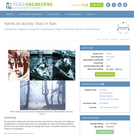
The goal of this activity is for students to develop visual literacy. They learn how images are manipulated for a powerful effect and how a photograph can make the invisible (pollutants that form acid rain) visible (through the damage they cause). The specific objective is to write captions for photographs.

This lecture introduces figurative language or "figures of speech"--including metaphor, simile, and personification--and provides examples of their use in everyday, literary, and academic writing. The lecture is offered here in three different formats: video with captions, video without captions, and a text transcript.